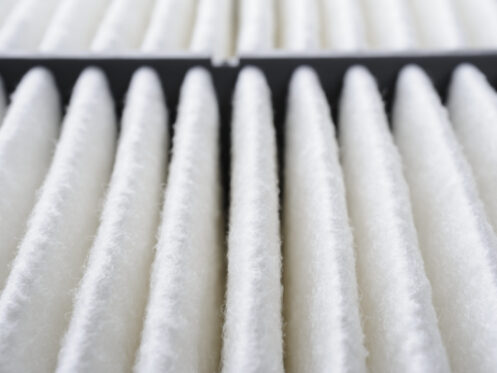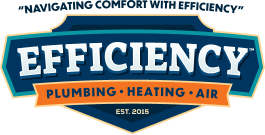When you think of air pollution, you may think of outdoor air, but we rarely think about the quality of the air we breathe indoors. Since most Americans spend approximately 87% of their time indoors, the quality of indoor air becomes a high priority. Improving the quality of the indoor air you breathe is easier than you might think.
Becoming Aware of Common Indoor Air Pollutants
There is a wide range of air pollutants of which you should be aware. These can range from outdoor contaminants that are drawn indoors to gas leaks, such as carbon monoxide that can leak within your home. In addition, if you have an older home, you may have lead particles in your paint or asbestos within the walls.
Although some of these contaminants may seem harmless, they can be very damaging to your family’s health. When compounds within these pollutants are released into the air, they can impact your lungs and lead to various allergies and dangerous respiratory conditions.
Places in your home that require extra attention are bathrooms and kitchens. These particular spaces have the propensity to accumulate mildew and mold. As moisture levels rise, it makes those types of environments perfect for bacteria and fungus to thrive.
How to Improve Your Home’s Air Quality and Reduce Air Pollutants
1. Check Your HVAC Unit’s Air Filter
Your air conditioner’s air filter is one of the most important components of your home. The main role of an air filter is to catch airborne particles and prevent them from circulating throughout your home. When air filters are due to be cleaned or changed, that means that they have become clogged and have lost the ability to filter particles. If left unattended, the air filter will obstruct airflow and cause your AC unit to work harder.
To avoid expensive energy bills or costly AC repairs, you should change or clean your air filter regularly. Most manufacturers suggest changing the air filter every 30 to 90 days. Find out your manufacturer’s precise instructions to know exactly how to service your air filter.
A simple way to keep up with your air conditioner’s maintenance is to schedule a regular AC inspection. A professional HVAC company can organize regular visits to ensure your air conditioning system is maintained, including changing the air filter. Allowing professionals to take care of your AC unit is one of the best ways to achieve maximum efficiency of the air conditioner unit and prolong its life.
2. Check Other Air Filters
Your HVAC unit is not your home’s only system with air filters. Various appliances around your home require regular maintenance of air filters. To ensure you achieve the best-quality indoor air in your home, be sure to also check the air filters in your vacuum cleaner, clothes dryer, kitchen vents and air purifiers.
3. Inspect Air Ducts
A very important component of your HVAC system is your air ducts. Their role is to distribute air throughout your property. This is the way cooled or warmed air reaches every room in your home for the most comfortable temperature.
An HVAC company will be able to do a comprehensive inspection of your air ducts. They will make sure they are installed and maintained properly while checking that they are not allowing contaminants to be distributed across your home.
If air ducts are not inspected, they accumulate mold, debris, dust, dander and other contaminants that will travel to the rooms inside your home. When properly maintained, air ducts will circulate filtered fresh and clean air to provide your family with the most healthy oxygenation.
4. Use Your Cooking Vents
The kitchen is responsible for a high amount of indoor air pollutants in your home. If you have a gas stove, you are likely releasing airborne contaminants into your space. These pollutants include dangerous compounds, such as nitrogen dioxide and carbon monoxide.
Even if you have an electric stove, you may still be emitting a low level of these harmful chemicals. These compounds enter your bloodstream and can lead to serious health conditions.
A few effective ways to avoid air pollutants when you cook are to turn on your kitchen vents, open windows and keep your air purifiers working optimally.
5. Clean Rugs and Carpets
Another important step to ensure your home’s indoor air stays clean is to regularly clean your rugs and carpets. These floor coverings have fibers notorious for trapping dust and other particles contaminating your indoor air. To prevent your rugs and carpets from becoming a source of pollution, be sure to clean them every week.
6. Keep Indoor Humidity Under Control
When it comes to protecting the quality of your indoor air, you must keep humidity and moisture under control. When indoor spaces have high levels of humidity, it creates the perfect breeding ground for mildew and mold. These contaminants lead to serious respiratory conditions and can also ruin your walls, ceilings, furnishings and other parts of your home.
High humidity is a bigger concern in certain climates, such as tropical areas, especially in the summertime. Become familiar with your HVAC system’s humidity settings. Ask your HVAC professional for an explanation of your humidity settings if you are not familiar with them.
Choose a Trusted HVAC Company
To ensure you have the best indoor air quality and can reduce air pollutants, choose a trusted HVAC company that can help you manage this important task. Since 2015, Efficiency Plumbing, Heating & Air has provided quality cooling, heating and plumbing services to Hanover, the South Shore and surrounding areas.
Our team is experienced in helping homeowners achieve the best-quality indoor air. We are trained in the industry’s best practices to keep homes healthy and HVAC units working at their optimum levels. Call Efficiency Plumbing, Heating & Air today for a consultation and find out how to improve indoor air quality!



